
Gay film and television dramas always include suffering. A lot of suffering. We in the LGBTQIA+ community don’t get a lot of Julia Roberts/Hugh Grant frothy rom coms. Hell, we don’t get any Marvel epics, Disney fables, sci-fi adventures, or even glitzy musicals of our own. C’est la vie.
But sometimes in the suffering, Hollywood gets it right. That is indubitably the case with Showtime’s/Hulu’s/Paramount+’s literary adaptation Fellow Travelers, starring Matt Bomer, Jonathan Bailey, Allison Williams, Jelani Alladin, and Noah Ricketts. It is almost the case with actor/star/auteur Bradley Cooper’s latest opus, the Leonard Bernstein biopic Maestro on Netflix, co-starring Carey Mulligan, Sarah Silverman, Maya Hawke, annnnnnnd … Matt Bomer!
It may be an unfair comparison, as Fellow Travelers benefits a) from being a work of historical fiction and b) from being told over eight episodes. The adaptation of Thomas Mallon’s novel has a lot more latitude and space to explore the nuances and travails of gay men living, loving, and, quite frankly, simply surviving – from the McCarthy communist witch hunts and Lavender Scare until the AIDS crisis in the mid-80s. I might also suggest, however, that Fellow Travelers benefits from its showrunners being openly gay themselves – among them writer/executive producer Ron Nyswaner and director/executive producer Daniel Minahan.
Now, I’m not one who subscribes to the notion that only people in one particular group can tell the stories of said group. Art is about exploring and learning and growing – and you can only do that by molding clay that may be a bit foreign to your own lived experience. However, the viewer can feel the qualitative difference when said stories are told by those who have experienced them firsthand versus those who haven’t. What is that old saw? “Write what you know.” It’s a conundrum to be sure – some of the best art is crafted by those who have survived a fiery furnace, but others gain knowledge and empathy by exploring its simulacrum.
Fellow Travelers covers (in essence) a waterfront remarkably akin to that of Tony Kushner’s Pulitzer Prize-winning two-part play Angels in America, itself a groundbreaking moment for gay literature and art. Closeted McCarthy bulldog Roy Cohn (later a mentor to Donald Trump) is a haunted gargoyle of an antagonist in each. As Cohn in Fellow Travelers, Will Brill is exceptional – infuriating AND heartbreaking – a scheming ball of self-loathing barbed wire. Matt Bomer’s Fellow Travelers character Hawkins Fuller, a state department bureaucrat and war hero, could be a corollary to Angels’ similarly “straight-presenting,” dual-life-leading Mormon anti-hero Joe Pitt. Jonathan Bailey’s tortured idealist Tim Laughlin who ricochets from cause to cause (McCarthyism, seminary, San Fran-community organizer) in Fellow Travelers evokes faith-conflicted, virtue-signaling Louis Ironson in Angels. And both characters are a bit … exhausting TBH. Hawk’s long-suffering wife Lucy Smith, as portrayed by Allison Williams in Fellow Travelers, follows a similar arc to Joe Pitt’s equally long-suffering wife Harper in Angels (minus the polar bear excursions). And we even have an answer for Angels’ Belize, the play’s over-it-all Jiminy Cricket-conscience, in Fellow Travelers’ will-they-won’t-they couple Marcus Gaines, a closeted journalist, and Frankie Hines, a very un-closeted drag performer and activist, portrayed respectively (and luminously) by Jelani Alladin and Noah Ricketts.
While the cast structure and timeline bear striking similarity to Angels, the tone is very different. No flights of fantasia nor whipsaw quippery here, and, in some respects, the story is more impactful for playing it, excuse me, straight. Particularly, Bomer and Williams turn in career-best performances. Neither fall prey to convention here. Bomer is, yes, a bit Mad Men-Don Draper-esque here (to the good). He plays the Machiavellian Hawkins as a fully formed human, broken as can be, but functioning – and functioning highly. A director I once had – Rex McGraw at Ohio State – told me, “Remember, the villain in a play doesn’t think they are the villain.” They are either trying to do the right thing or simply getting by. Hawkins is not a victim nor a victimizer, but a creature of circumstance and access. He’s paved a career through military and state service, lives a personal life of countervailing performative balance, and dreams of it all leading one day to unlimited freedom (a day that never comes). In contrast, Williams could play simply the tragic collateral damage to all this – the naive spouse who trades away full-fledged love for security. Her character and her portrayal are too smart for that. She knows what she’s gotten into, sees the promise in Hawkins, but also shields her own heart as best she can.
What people outside the LGBTQIA+ community – particularly of a certain era – may fail to understand is that for many (myself included) we play a game with ourselves (much like Hawkins) that with the passage of time (and the passing of some family members) one day we can be our true selves. Some of us realize that is folly, and some don’t. And that is a central tension of Fellow Travelers, Angels in America, and, yes, Maestro.
Bradley Cooper has gotten some flak for using prosthetics to resemble (uncannily I might add) composer/conductor/wunderkind Leonard Bernstein in Maestro. Regarding my point that not everyone has to be it to play it? This applies here IMHO. The film is a remarkable feat – Cooper writes, directs, produces, stars – and I mean he STARS, baby. Remember that clip of Cooper as an overeager grad student asking Robert DeNiro a question from the audience of Inside the Actors’ Studio with James Lipton? That same overeager Cooper brings his golden retriever-like energy to Leonard Bernstein’s own golden retriever-like energy and at times it’s just so much muchness.
It’s all beautifully framed, reverent even. And that’s a bit of the problem. Again, Fellow Travelers has a lot more time in which to tell its tale, but Maestro almost comes off like a series of frustratingly fragmented sketches, a tone poem if you will, that can’t decide if it wants to lionize Bernstein or crush him under the weight of his own vanity. A good biographical film doesn’t have to do either – in fact it shouldn’t – but the fact that Maestro feels as synaptically syncopated as Bernstein’s score to West Side Story makes for a slightly maddening viewing experience. And please note, I generally liked the film, but I wish it had slowed down every once in a while, cut down on the Altman-esque overlapping clichéd dialogue, and let us really delve into this brilliant soul’s mind and heart. It feels like Cooper took literally Bernstein’s closeted bisexuality and the conflict it presented Bernstein – existing in the same era as Fellow Travelers with life and career at comparable risk. Consequently, Cooper is playing the same game of “keep-away” with the narrative that Bernstein played with his sexual identity.
Thank heavens for Carey Mulligan. I think I write that sentence yearly now. As Felicia Montealegre Bernstein, Mulligan keeps the film from spinning off its well-intentioned axis. The script doesn’t give her as much as it could – again, a LOT of naturalistic “dialogue” which weirdly on film comes off pretentious and unnatural, but it is what it is. Nonetheless, Mulligan gets more across with the arch of an eyebrow, the pursing of her lips, a clenched jaw, a smile that fades slowly into a grimace and then a frown, the flicking of a cigarette. (Speaking of which it becomes almost comical that every single moment of every single scene Lenny and Felicia have cigarettes in their hands – like everywhere. I know smoking was a different vice back then, but come on!) With her precisely-expressioned face alone, Mulligan gives the audience long, deep looks into the pain (and joy) of sharing her life – professional and personal – with the boundlessly creative and self-indulgent Lenny. And this is where having some LGBTQIA+ creatives involved in the production might have helped Cooper strike the right balance depicting the high wire act Leonard Bernstein was navigating. Mulligan has the sensitivity and insight and empathy to show us the impact, but Cooper – wearing ALL those hats and with a healthy dollop of hero worship – doesn’t quite stick the landing, the way Bomer does in Fellow Travelers.
And, yes, both Maestro and Fellow Travelers include fourth act scenes in discotheques. It seems to be de rigeur for queer-themed productions. Whereas Fellow Travelers uses the setting as a place to explore the impact of emotional (and physical) self-medication, Maestro uses it to cringe effect (as the kids say). Seeing a sweaty Leonard Bernstein swaying his arms to Tears for Fears’ “Shout” (seriously, was that song ever played in a gay dance bar) as some final, triumphant act of liberation? Yeah, not so much.
(By the way, Cooper also has Bernstein listening to R.E.M.’s “End of the World as We Know It,” exiting his cute red convertible just as Michael Stipe shouts the lyric “LEEEEOONNN-ARRRRD BERN-STEEEEEIN!” I really had no idea what to make of that. Seemed a bit Mel Brooks-y to me.)
Both productions are well worth your time. I feel like I’ve been a bit uncharitable toward Mr. Cooper and Maestro. He should be proud of his achievement, and if I were his eighth grade English teacher I would give him a gold star and an A+ on his thesis project. But, for my money, the better bet is with Fellow Travelers. It says much about the human condition – queer or otherwise – and is beyond revelatory regarding our present socio-politically fragmented days. It’s the end of the world as we know it … and I feel fine.











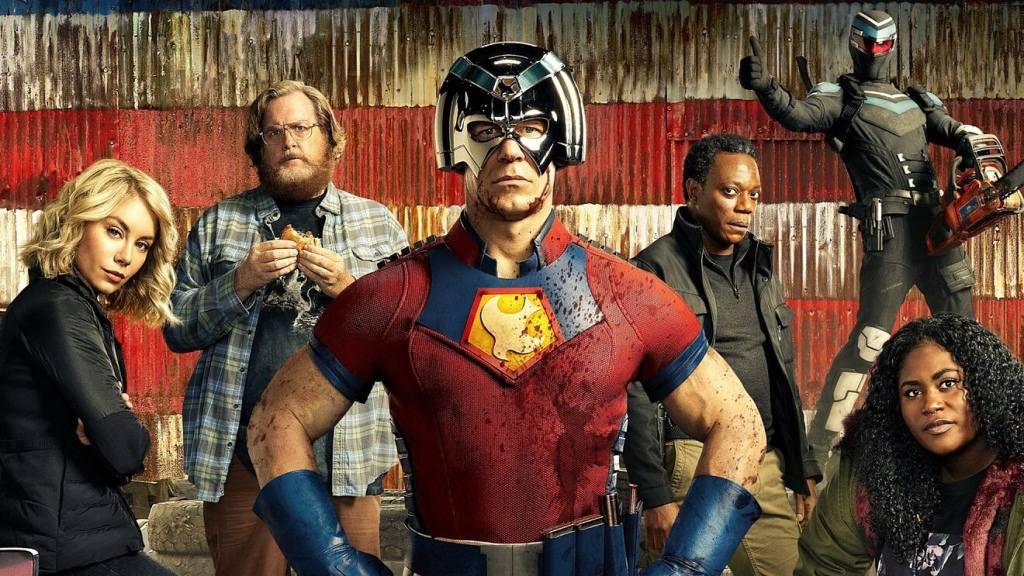

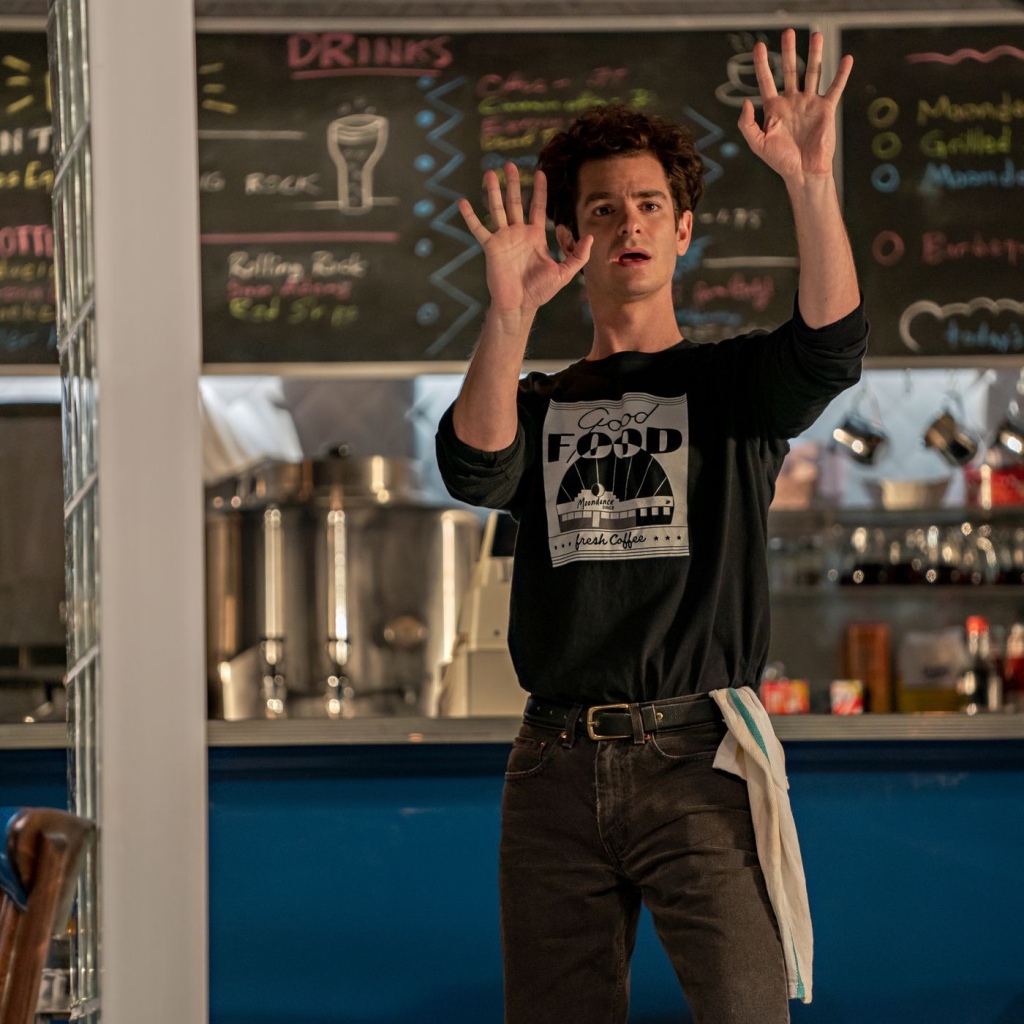
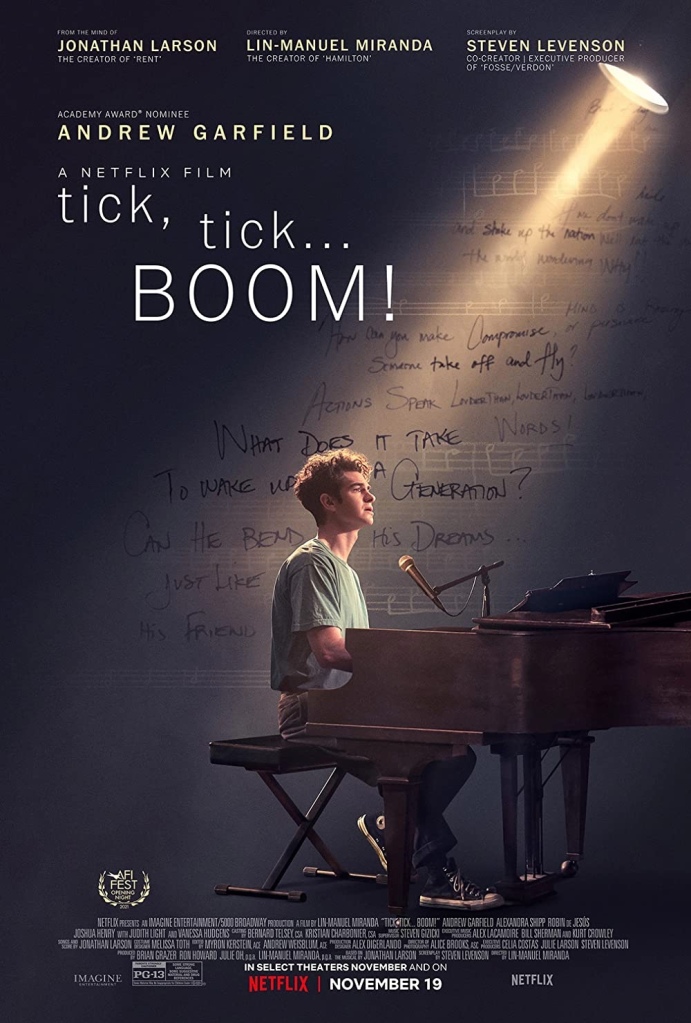
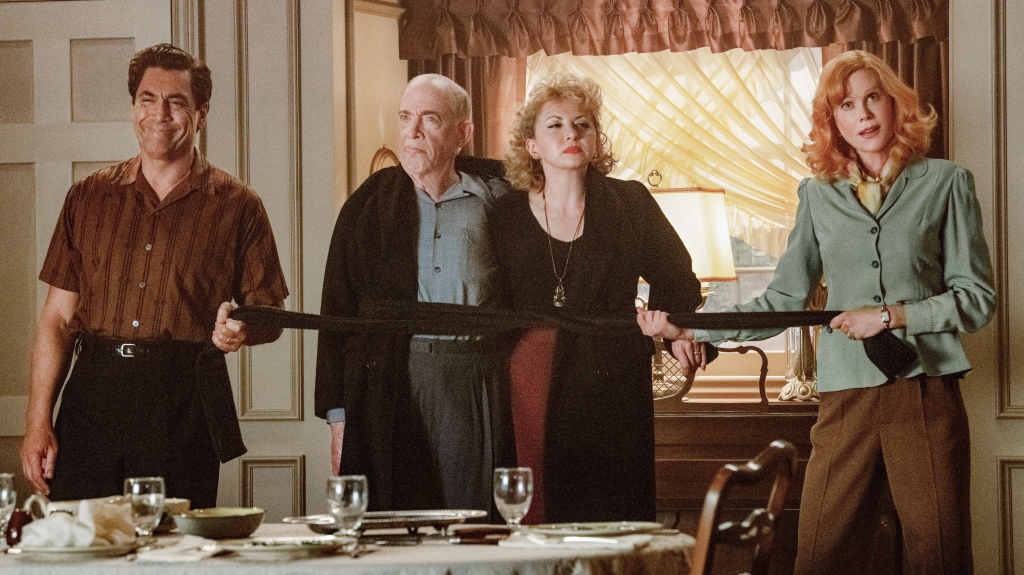
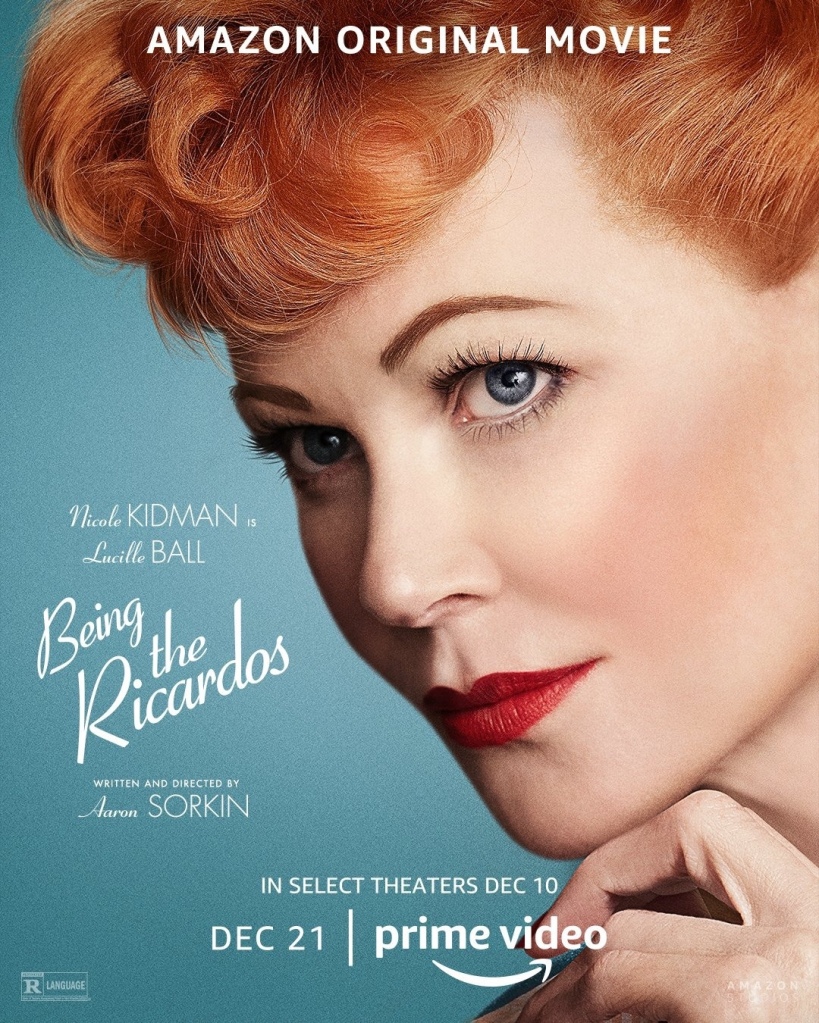






















 The human faces on CGI cat bodies are disconcerting (mostly in how they kind of float around and drift a bit), but I found the un-CGI’d human hands and feet even more repulsive. Rebel Wilson (Jenny Anydots) should not be allowed anywhere near a musical. Or a piano. Or karaoke. Or cockroaches. The group dance numbers should have all been cut, as pseudo-ballet is pretty but not much fun to watch in the cinema, and Hooper’s approach to filming said numbers is by turns monotonous and disorienting. Imagine Michael Bay’s
The human faces on CGI cat bodies are disconcerting (mostly in how they kind of float around and drift a bit), but I found the un-CGI’d human hands and feet even more repulsive. Rebel Wilson (Jenny Anydots) should not be allowed anywhere near a musical. Or a piano. Or karaoke. Or cockroaches. The group dance numbers should have all been cut, as pseudo-ballet is pretty but not much fun to watch in the cinema, and Hooper’s approach to filming said numbers is by turns monotonous and disorienting. Imagine Michael Bay’s 
 The film is good, though lacking the depth of other treatments (namely Loudest Voice on Showtime). Go for Charlize Theron’s uncanny take on Megyn Kelly. Stay for the popcorn zip of director Jay Roach’s takedown of the hypocritical/toxic right wing media. Margot Robbie is remarkable as a production assistant torn between her ambition and her tenuous grasp on integrity. In other words, she fits right in in the FOX newsroom. Kate McKinnon is acerbic fun as Margot’s cubicle-mate, and Nicole Kidman does her best version of Nicole Kidman-as-befuddled-ice-queen as Gretchen Carlson, who first brings charges against Ailes. Some have worried that the film makes heroes of the unheroic, Kelly and Carlson and their ilk being as complicit in the rise of this Trumpian nation-state as anyone. Charles Randolph’s script doesn’t let them off the hook, in my opinion, and Roach’s swirling direction keeps the audience from feeling too much empathy for anyone.
The film is good, though lacking the depth of other treatments (namely Loudest Voice on Showtime). Go for Charlize Theron’s uncanny take on Megyn Kelly. Stay for the popcorn zip of director Jay Roach’s takedown of the hypocritical/toxic right wing media. Margot Robbie is remarkable as a production assistant torn between her ambition and her tenuous grasp on integrity. In other words, she fits right in in the FOX newsroom. Kate McKinnon is acerbic fun as Margot’s cubicle-mate, and Nicole Kidman does her best version of Nicole Kidman-as-befuddled-ice-queen as Gretchen Carlson, who first brings charges against Ailes. Some have worried that the film makes heroes of the unheroic, Kelly and Carlson and their ilk being as complicit in the rise of this Trumpian nation-state as anyone. Charles Randolph’s script doesn’t let them off the hook, in my opinion, and Roach’s swirling direction keeps the audience from feeling too much empathy for anyone.
 I didn’t love
I didn’t love 
 Among the cast, of course Saoirse Ronan is dynamite as Jo, never losing the spirit or authenticity of the era but painting a clear-eyed portrait of a human being gobsmacked by the artificial limitations society imposes on her gender. The more things change. …
Among the cast, of course Saoirse Ronan is dynamite as Jo, never losing the spirit or authenticity of the era but painting a clear-eyed portrait of a human being gobsmacked by the artificial limitations society imposes on her gender. The more things change. …
 Outside of the cinema, we also caught some great flicks now on home video or streaming/cable. The House with a Clock in Its Walls is a welcome, wholesome throwback to the ABC Afterschool Special and Wonderful World of Disney broadcasts of yore.
Outside of the cinema, we also caught some great flicks now on home video or streaming/cable. The House with a Clock in Its Walls is a welcome, wholesome throwback to the ABC Afterschool Special and Wonderful World of Disney broadcasts of yore.
 His reclamation of his own voice and of his own industriousness is tied inextricably to his reconciliation of a past that haunts him and of a present that buffets him – not unlike what befalls Ebenezer Scrooge (a brilliant and twinkling Christopher Plummer). Jonathan Pryce deftly balances heartbreak, disappointment, and yearning as Dickens’ embattled father. The production, directed with a sure hand by Bharat Nalluri from a layered and literate script by Susan Coyne, is a breath of fresh air in an increasingly cliched holiday season.
His reclamation of his own voice and of his own industriousness is tied inextricably to his reconciliation of a past that haunts him and of a present that buffets him – not unlike what befalls Ebenezer Scrooge (a brilliant and twinkling Christopher Plummer). Jonathan Pryce deftly balances heartbreak, disappointment, and yearning as Dickens’ embattled father. The production, directed with a sure hand by Bharat Nalluri from a layered and literate script by Susan Coyne, is a breath of fresh air in an increasingly cliched holiday season.
 As the film works toward its resolution, which as evidenced by the trailers includes Bernadette voyaging to Antarctica, her family finds healing, as they embrace the spark that makes Bernadette an individual while balancing the collective needs that will re-center their lives. The seemingly screwball comedy elements of the film may lead viewers to miss the important nuance here. Not dissimilarly to
As the film works toward its resolution, which as evidenced by the trailers includes Bernadette voyaging to Antarctica, her family finds healing, as they embrace the spark that makes Bernadette an individual while balancing the collective needs that will re-center their lives. The seemingly screwball comedy elements of the film may lead viewers to miss the important nuance here. Not dissimilarly to 













 I guess when you met me, it was just one of those things
I guess when you met me, it was just one of those things








 Reel Roy Reviews is now TWO books! You can purchase your copies by clicking
Reel Roy Reviews is now TWO books! You can purchase your copies by clicking 




 “I’m still the lady I was. In my heart.” – Abigail Hill (Emma Stone) in The Favourite
“I’m still the lady I was. In my heart.” – Abigail Hill (Emma Stone) in The Favourite


 Reel Roy Reviews is now TWO books! You can purchase your copies by clicking
Reel Roy Reviews is now TWO books! You can purchase your copies by clicking